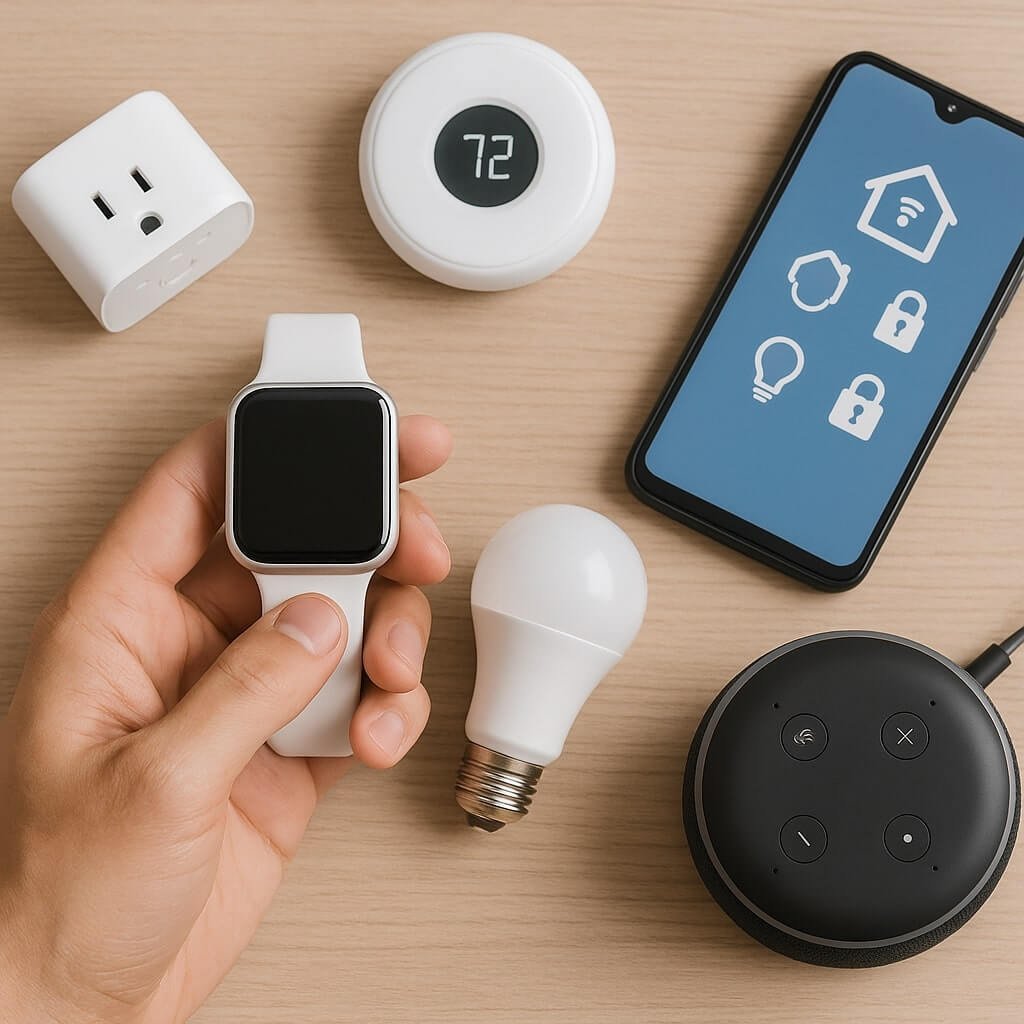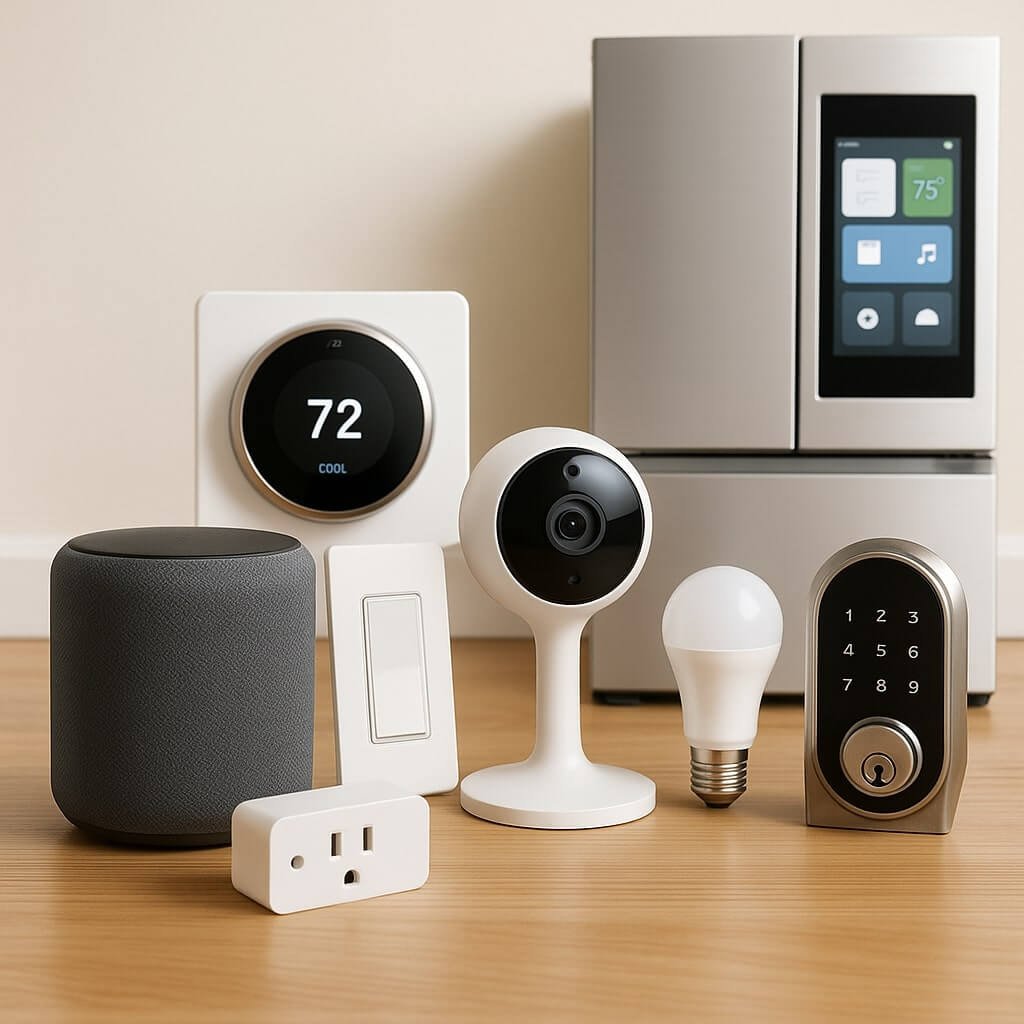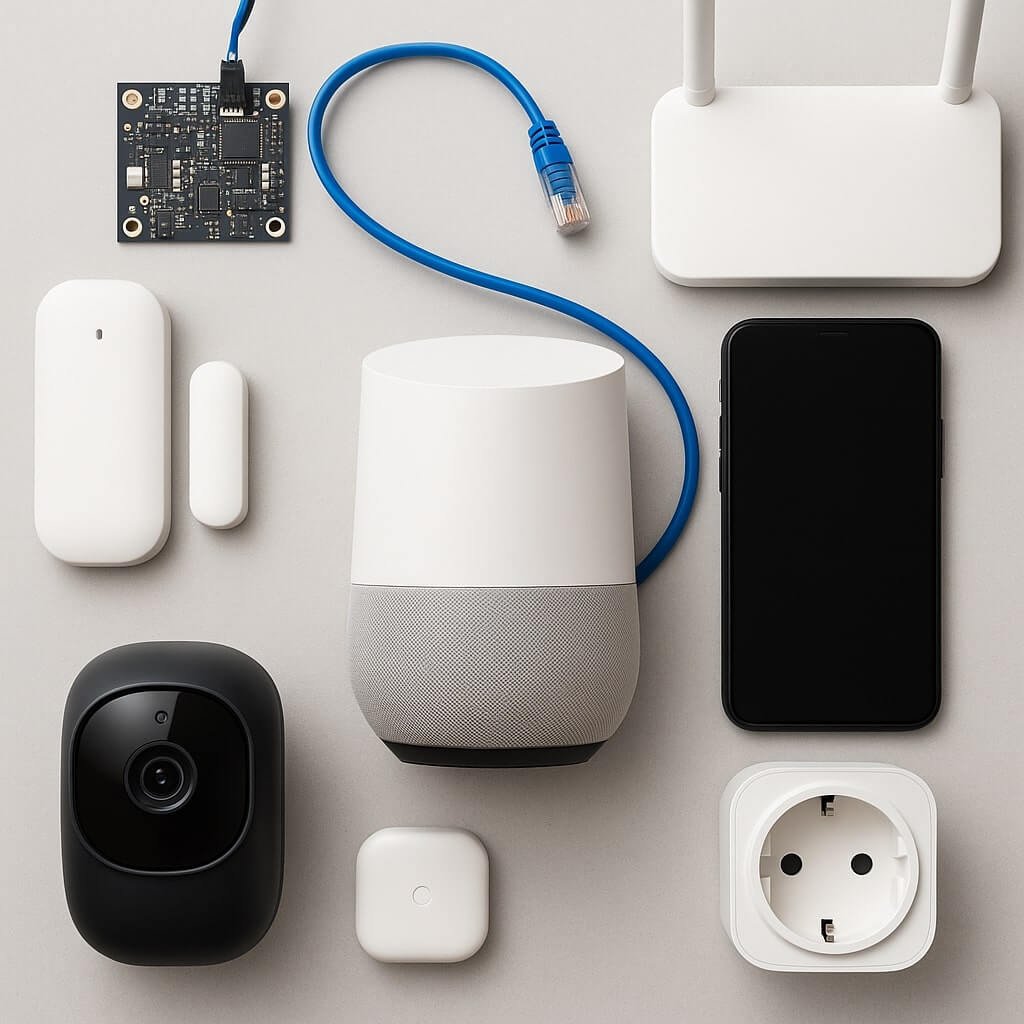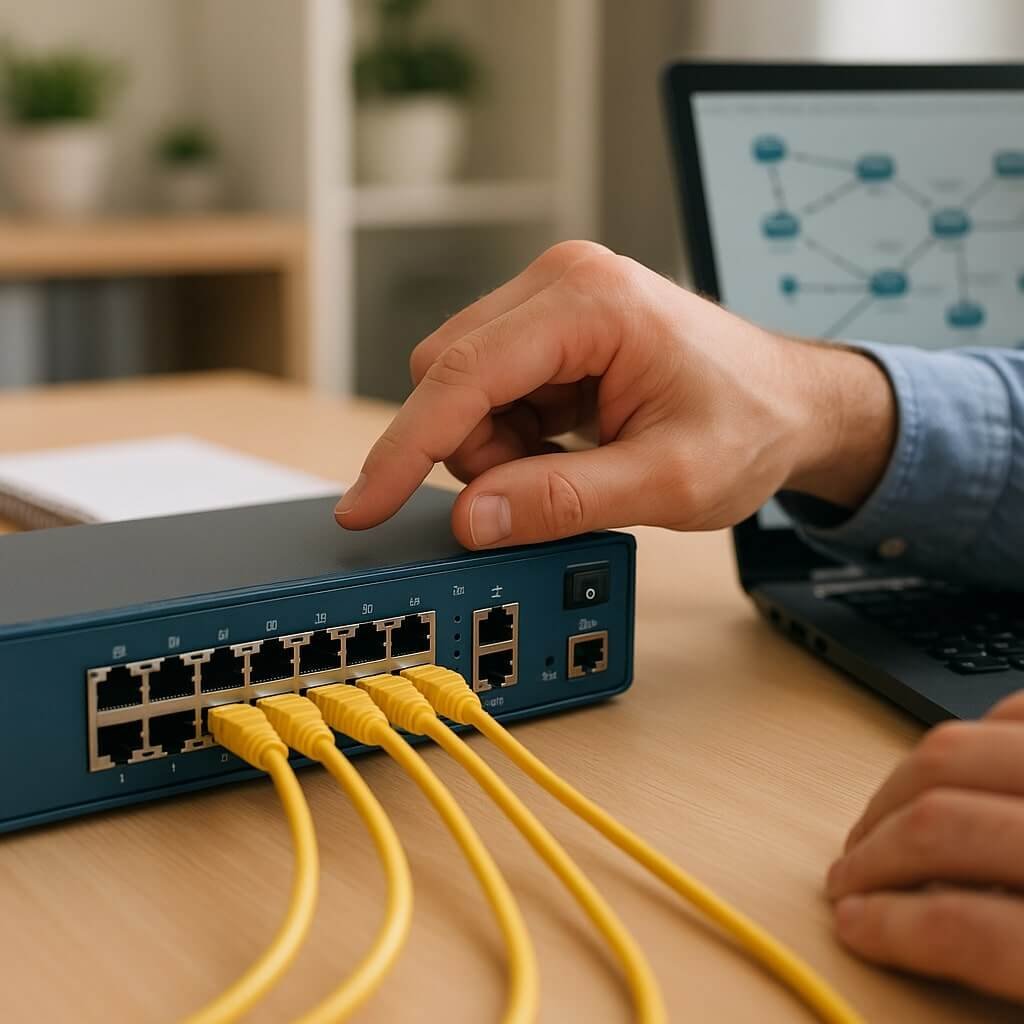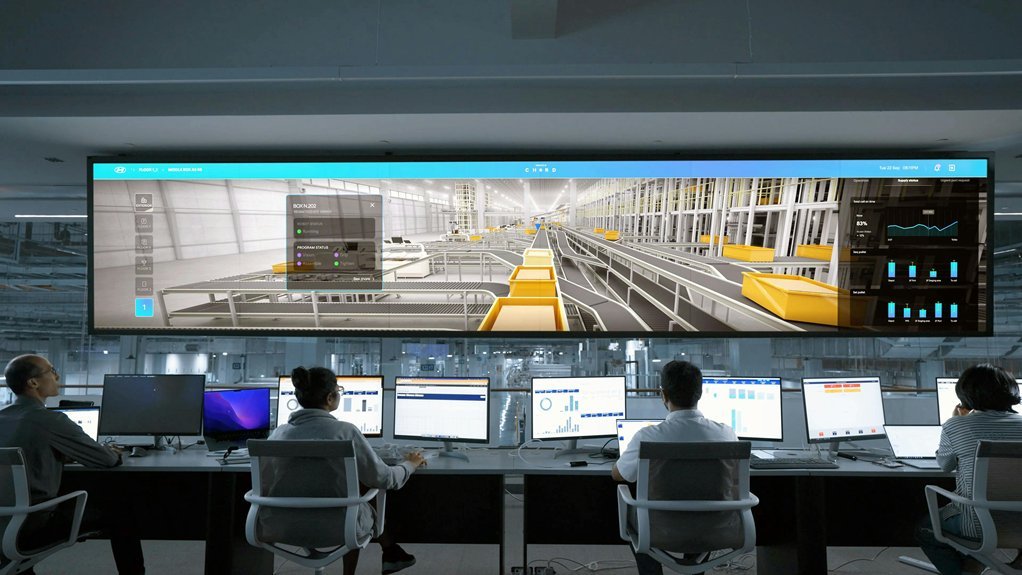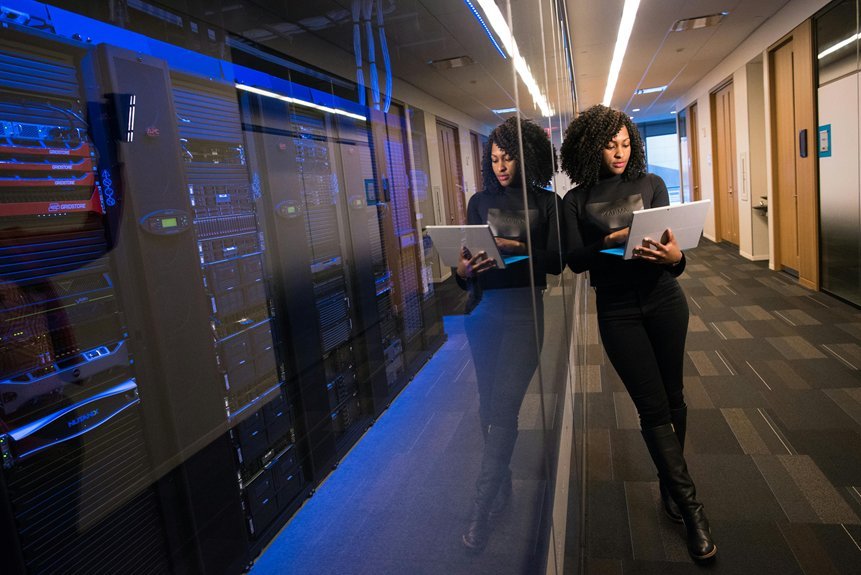The Internet of Things (IoT) is no longer just a buzzword. It’s a transformative force that’s reshaping daily life across the globe. From smart homes to industrial automation, IoT devices are changing the way we live by enhancing convenience, improving efficiency, and enabling smarter decision-making.
In this article, we explore why IoT devices are revolutionising our lifestyles, the real-world benefits they bring, and answer frequently asked questions to give you a complete understanding of this technological shift.
What Are IoT Devices?
IoT devices are physical objects embedded with sensors, software, and other technologies that enable them to connect and exchange data with other systems and devices via the internet. These include:
- Smart thermostats
- Wearable health monitors
- Voice assistants (e.g., smart speakers)
- Connected cars
- Industrial sensors
The primary goal of IoT is to automate tasks, collect data, and provide actionable insights to improve efficiency, comfort, and safety.
How IoT Devices Are Transforming Everyday Life
1. Smart Homes: Enhancing Comfort and Energy Efficiency
IoT devices have turned traditional homes into smart homes. Devices such as smart thermostats, lighting systems, and voice-activated assistants allow users to control various aspects of their environment remotely or automatically, leading to:
- Energy savings
- Increased security
- Convenience through automation
2. Healthcare: Monitoring and Preventive Care
Wearable IoT devices like fitness trackers and smartwatches monitor heart rate, activity levels, and sleep patterns. In clinical settings, IoT enables:
- Remote patient monitoring
- Real-time alerts for health emergencies
- Better chronic disease management
3. Transportation: Smarter, Safer, and More Efficient
IoT in transportation includes connected cars, GPS tracking, and traffic management systems. These devices help:
- Improve road safety through predictive analytics
- Reduce congestion with real-time updates
- Enable autonomous vehicle navigation
4. Industrial and Business Applications
In industries and manufacturing, IoT devices are integral to smart factories and Industry 4.0. They facilitate:
- Predictive maintenance of machinery
- Real-time inventory tracking
- Enhanced supply chain transparency
5. Agriculture: Data-Driven Farming
IoT-enabled smart farming tools assist with:
- Soil condition monitoring
- Livestock tracking
- Precision irrigation systems
These lead to higher yields, reduced waste, and more sustainable practices.
The Benefits of IoT in Modern Society
- Efficiency: Automation of routine tasks
- Cost Savings: Reduced energy consumption and optimised operations
- Safety: Real-time alerts and monitoring
- Convenience: Hands-free control and remote access
- Data Insights: Predictive analytics and trend forecasting
Challenges of IoT Adoption
Despite its advantages, IoT adoption brings challenges such as:
- Security and Privacy Risks: More connected devices mean more entry points for cyberattacks.
- Data Overload: Managing and analysing large volumes of data.
- Interoperability Issues: Ensuring that different devices and platforms can communicate effectively.
The Future of IoT: What to Expect
Looking ahead, IoT will continue to grow with advancements in AI, 5G, and edge computing. This will:
- Enhance real-time decision-making
- Enable broader IoT use in smart cities
- Drive innovation in consumer and enterprise products
FAQs: Why IoT Devices Are Changing the Way We Live
What is the main purpose of IoT?
The primary purpose of IoT is to improve efficiency, automation, and data-driven decision-making by connecting devices to the internet.
How do IoT devices communicate?
They use internet protocols like Wi-Fi, Bluetooth, Zigbee, or cellular networks to send and receive data.
Are IoT devices secure?
IoT devices can be secure, but they require regular updates, strong passwords, and proper configuration to protect against cyber threats.
Can IoT work without the internet?
Some devices can operate locally using local networks or edge computing, but internet connectivity is essential for cloud-based services and remote access.
What industries benefit the most from IoT?
Healthcare, agriculture, manufacturing, logistics, and smart cities benefit significantly from IoT implementation.
Final Thoughts
The impact of IoT devices on our daily lives is both profound and ongoing. From simplifying household chores to transforming entire industries, the Internet of Things is creating a more connected, efficient, and intelligent world.
For businesses and consumers alike, embracing IoT is not just about adopting new gadgets—it’s about staying ahead in an increasingly digital landscape.

